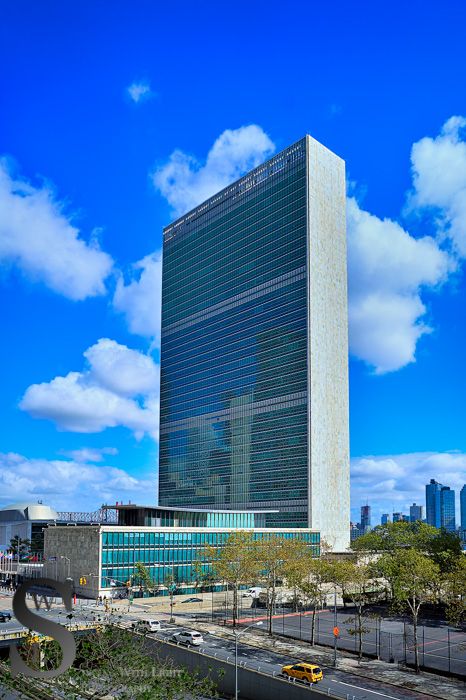This article is part of a series on ‘Women, Peace and Security’ that The Strategist is publishing in recognition of International Women’s Day 2017.
In the Security Council debate around Resolution 2242 in 2015—which marked 15 years since the adoption of the ground breaking Resolution 1325 on Women, Peace and Security (WPS)—a key refrain was: ‘we’ve been paying lip service to the importance of this issue for 15 years. It’s now time for less talk and more action’.
Resolution 1325 has become the guide for all UN policies and programs in supporting women in conflict and post conflict societies. In this context it’s essential that our work focuses not only on protecting women but on empowering them to participate fully in all the processes that affect them. UN Peacekeeping implements this mandate primarily through gender advisers at headquarters and in the field.
Our first gender advisers were deployed to Kosovo and East Timor in 1999 and as mandated we now have them on the ground in all 16 peacekeeping missions. Their core functions, as articulated in our Gender Equality in UN Peacekeeping Operations Policy (2010) are to provide technical guidance and support to senior management of the peacekeeping mission; to mainstream gender issues into all civil, military and police components; and to build the capacity of personnel to guide the gender mainstreaming efforts.
After a recent DPKO internal evaluation of our work on WPS, it’s clear that the UN has put an impressive amount of effort into putting policies, guidance and training programs and materials in place to support implementation of this mandate. Unfortunately, what remains is a general lack of understanding of why gender mainstreaming is important and how it adds value to our broader peacekeeping mandate and responsibilities.
Firstly, there is a lack of leadership on this mandate from senior management in UN peacekeeping. This isn’t surprising given the competing priorities faced by the leaders of peacekeeping missions. Secondly, the level of gender adviser posts and their structural location within our missions have reduced the access of our Senior Gender Advisers to mission leadership and created a kind of ‘gender enclave’ rather than supporting the mainstream effort.
We have had a high turnover of gender advisers, have an under resourced Gender Unit at headquarters and had posts removed or reallocated in our missions. These factors have also led to a lack of perceived career path for gender advisers. Due in part to our inability to show the value-added of the WPS mandate to the overall mandate of the missions, it’s sometimes perceived as a technical/niche area and not the responsibility of all mission staff. This is problematic because of the positive impact that our WPS work could potentially have on issues like community access, information gathering and analysis, and early warning mechanisms.
Nevertheless, there are several examples of what we know works. All our missions now hold ‘Global Open Days’ on WPS every year, where the head of mission reaches out to local women’s groups across the country to give high level political attention to their concerns and to enhance their roles. In Darfur for example, at the most recent Open Day women from four states came together to create an institutional mechanism to support the implementation by government of Resolution 1325 and create a women’s protection network.
The Department of Peacekeeping Operations (DPKO) Forward Looking Gender Strategy (2014-2018), combined with Resolution 2242 and a series of high-level peace and security reviews have generated new momentum and strengthened the hand of those working to improve our work on gender within the Secretariat. DPKO leadership will now elevate the Senior Gender Adviser at UN headquarters to the office of our Chief of Staff to facilitate regular access to both Under Secretary-Generals. We have finalised standardised gender reporting training materials and are developing gender-based conflict analysis training for mission planners to ensure a gender lens is applied from the start-up of our missions.
In the field, our Senior Gender Advisers now report directly to our Heads of Mission. Gender targets will now be used as specific indicators of individual performance of all senior managers. Now all gender officer posts that have been mandated must be budgeted for in missions and filled with appropriate staff.
At the UN we now focus on five entry points for WPS: through policies such as one addressing gender-specific conflict analysis; through women’s participation in post conflict decision making processes; through personnel by creating an enabling environment to achieve 50-50 gender parity; through protection by ensuring that all UN action takes into account the protection of women and girls; and finally through partnership that can broaden mainstreaming efforts and make our impact more sustainable.
This article was originally published by the Australian Strategic Policy Institute on March 27, 2017
Leanne Smith is Associate Director of the Whitlam Institute, Western Sydney University and currently on sabbatical from her role as the Chief of the Policy and Best Practice Service of the United Nations Department of Peacekeeping Operations in New York. Image courtesy of the Department of Defence.



